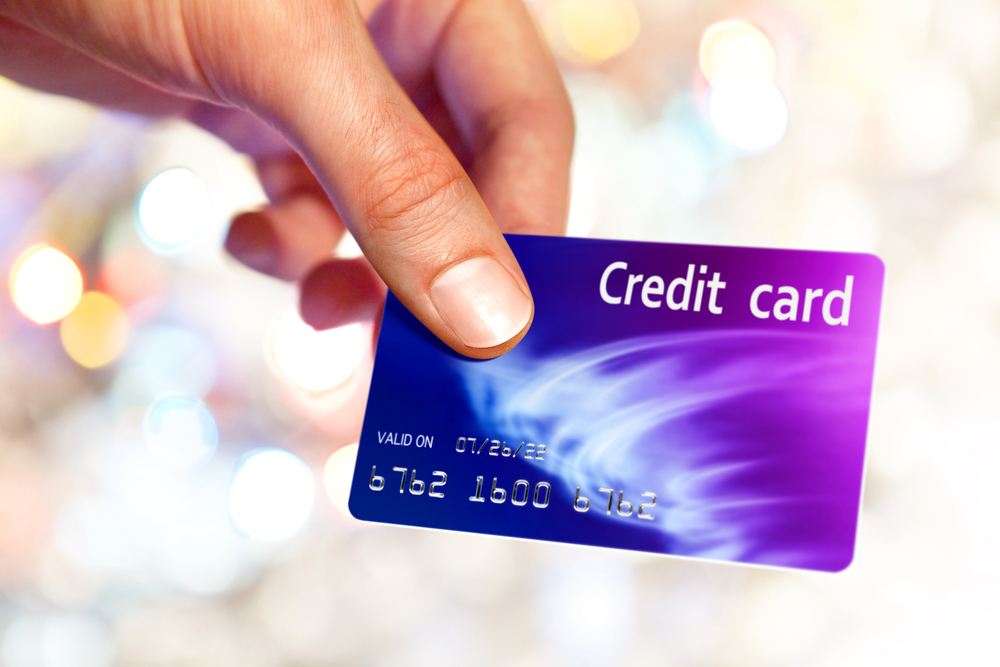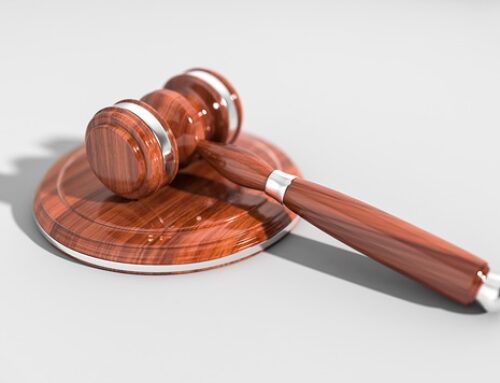Understanding Charge-Offs: What Happens When You Default on Your Debt
Debt can be a daunting topic, and defaulting on it can be even more overwhelming. When you get behind on payments, creditors may charge-off your account.
- But what does it mean to have a charge-off on your credit report?
- How does it affect your credit score?
- And what options do you have to get back on track?
In this article, we’ll dive into the world of charge-offs and help you understand what happens when you default on your debt. We’ll discuss the steps creditors take when charging off an account, how it impacts your credit score, and what steps you can take to improve your credit and financial situation. Whether you’re struggling with debt or want to learn more about the consequences of defaulting, this article will provide you with the knowledge you need to make informed decisions about your finances. So, let’s get started and demystify the world of charge-offs.
What is a charge-off?
A charge-off is a term used by creditors to describe a debt that they do not expect to be repaid. When you fail to make payments on a debt, the creditor may charge-off the account after a period of time. This does not mean that you are no longer responsible for the debt; it just means that the creditor has given up on collecting the money from you.
When a debt is charged-off, the creditor will typically send the account to a collections agency. The collections agency will then attempt to collect the debt from you. In some cases, the creditor may sell the debt to a third-party debt buyer, who will then attempt to collect the debt.
It’s important to note that a charge-off is not the same as a write-off. When a debt is written off, it means that the creditor has given up on collecting the debt and has removed it from their books as a loss. This does not mean that you are no longer responsible for the debt.
How does a charge-off affect your credit?
A charge-off can have a significant negative impact on your credit score. When a creditor charges-off an account, they will report the charge-off to the credit bureaus. The charge-off will remain on your credit report for seven years from the date of the first missed payment that led to the charge-off.
A charge-off is considered a serious delinquency and will have a major impact on your credit score. The exact impact will depend on a number of factors, including the amount of the debt, the age of the debt, and your overall credit history. In general, the higher the amount of the debt and the more recent the charge-off, the greater the negative impact on your credit score.
A charge-off can also make it more difficult for you to obtain credit in the future. Lenders may be hesitant to extend credit to someone with a charge-off on their credit report, as it suggests that they may not be able to repay the debt.
What happens when a debt is charged-off?
When a debt is charged-off, the creditor will typically send the account to a collections agency. The collections agency will then attempt to collect the debt from you. In some cases, the creditor may sell the debt to a third-party debt buyer, who will then attempt to collect the debt.
If you are contacted by a collections agency or a debt buyer, it’s important to understand your rights. The Fair Debt Collection Practices Act (FDCPA) is a federal law that outlines the rules and regulations that debt collectors must follow when attempting to collect a debt. Among other things, the FDCPA prohibits debt collectors from harassing you, using deceptive or misleading tactics, or contacting you at certain times or places.
If you are contacted by a debt collector, it’s important to verify the debt before making any payments. You have the right to request validation of the debt, which requires the collector to provide you with certain information about the debt, including the amount owed and the name of the original creditor.
How long does a charge-off stay on your credit report?
A charge-off will remain on your credit report for seven years from the date of the first missed payment that led to the charge-off. This means that the negative impact on your credit score will last for seven years.
However, it’s important to note that the impact of a charge-off will diminish over time as it becomes older. Lenders may be more willing to extend credit to someone with a charge-off on their credit report if the charge-off is several years old and the individual has demonstrated responsible credit behavior since the charge-off occurred.
Can you still pay off a charged-off debt?
Yes, you can still pay off a charged-off debt. In fact, it’s generally a good idea to do so if you have the means to do it. Paying off a charged-off debt can help improve your credit score and demonstrate to lenders that you are responsible with your finances.
If you decide to pay off a charged-off debt, it’s important to negotiate with the collections agency or debt buyer to ensure that the debt is reported as “paid in full” on your credit report. If the debt is reported as “settled” or “paid in full for less than the full balance,” it can still have a negative impact on your credit score.
Negotiating with creditors to remove charge-offs
It is possible to negotiate with creditors to have a charge-off removed from your credit report. However, this is not an easy task and is typically only successful in certain circumstances.
One strategy for negotiating with creditors is to offer to pay off the debt in exchange for having the charge-off removed from your credit report. This is known as a pay-for-delete agreement. Not all creditors are willing to enter into pay-for-delete agreements, but it can be worth asking if you are in a position to pay off the debt.
Another strategy is to dispute the charge-off with the credit bureaus. If the creditor cannot provide proof that the debt is valid, the credit bureaus may remove the charge-off from your credit report.
How to rebuild your credit after a charge-off
Rebuilding your credit after a charge-off can be a challenging process, but it is possible. The first step is to pay off any outstanding debts and ensure that all future payments are made on time.
It can also be helpful to obtain a secured credit card. A secured credit card requires a cash deposit, which serves as collateral for the credit limit. This can be an effective way to establish or rebuild credit.
Another strategy for rebuilding credit is to become an authorized user on someone else’s credit card. This can help you establish credit history and improve your credit score, as long as the primary cardholder makes timely payments.
Alternatives to defaulting on debt
If you are struggling with debt, there are alternatives to defaulting on your debt. One option is to contact your creditor and request a payment plan or a hardship program. Many creditors are willing to work with individuals who are experiencing financial difficulties.
Another option is to seek the assistance of a credit counseling agency. A credit counselor can help you create a budget, negotiate with creditors, and develop a plan to pay off your debt.
Seeking professional help for debt management
If you are overwhelmed by debt and unable to make payments, it may be time to seek professional help for debt management. There are a number of options available, including debt consolidation, debt settlement, and bankruptcy.
Debt consolidation involves combining multiple debts into a single loan with a lower interest rate. Debt settlement involves negotiating with creditors to pay a portion of the debt in exchange for having the remainder forgiven. Bankruptcy is a legal process that can help individuals eliminate or restructure their debts.
It’s important to carefully consider the pros and cons of each option and seek the advice of a qualified credit repair professional before making a decision.
In conclusion, a charge-off can have a significant negative impact on your credit score and financial situation. However, it is possible to recover from a charge-off and improve your credit over time. By understanding the consequences of defaulting on debt and taking steps to manage your debt and rebuild your credit, you can take control of your finances and build a brighter financial future.
📣 Take charge of your credit score with Masters Credit!
Are charge-offs weighing down your credit report and preventing you from achieving your financial goals? Look no further, because Masters Credit is here to assist you in reclaiming control and boosting your credit score!
With a wealth of experience in the field, Masters Credit specializes in removing charge-offs from credit reports. Our dedicated team of experts understands the complexities of credit bureaus and knows the proven strategies to challenge and remove these negative marks. We are committed to helping you improve your creditworthiness and open doors to new opportunities.
Don’t let past financial setbacks hold you back any longer. By partnering with Masters Credit, you’ll gain access to personalized solutions tailored to your unique situation. Our team will work diligently to analyze your credit report, identify inaccuracies, and craft effective dispute letters on your behalf. We’ll be with you every step of the way, advocating for your rights and fighting to remove charge-offs from your credit history.
Your credit score is a vital asset that influences your ability to secure loans, obtain favorable interest rates, and achieve financial milestones. Don’t let charge-offs hinder your progress. Take action now with Masters Credit and watch your credit score soar!
Call Masters Credit at 1-844-620-8796 to speak with one of our knowledgeable representatives. Let us guide you through the process of removing charge-offs and rebuilding your credit. With our expertise and dedication, you can regain control over your financial future.
Take our free online credit evaluation today!
[wpi_designer_button slide_id=6350]
Note: The information on this website is for general purposes only and does not constitute financial or legal advice.






Leave A Comment